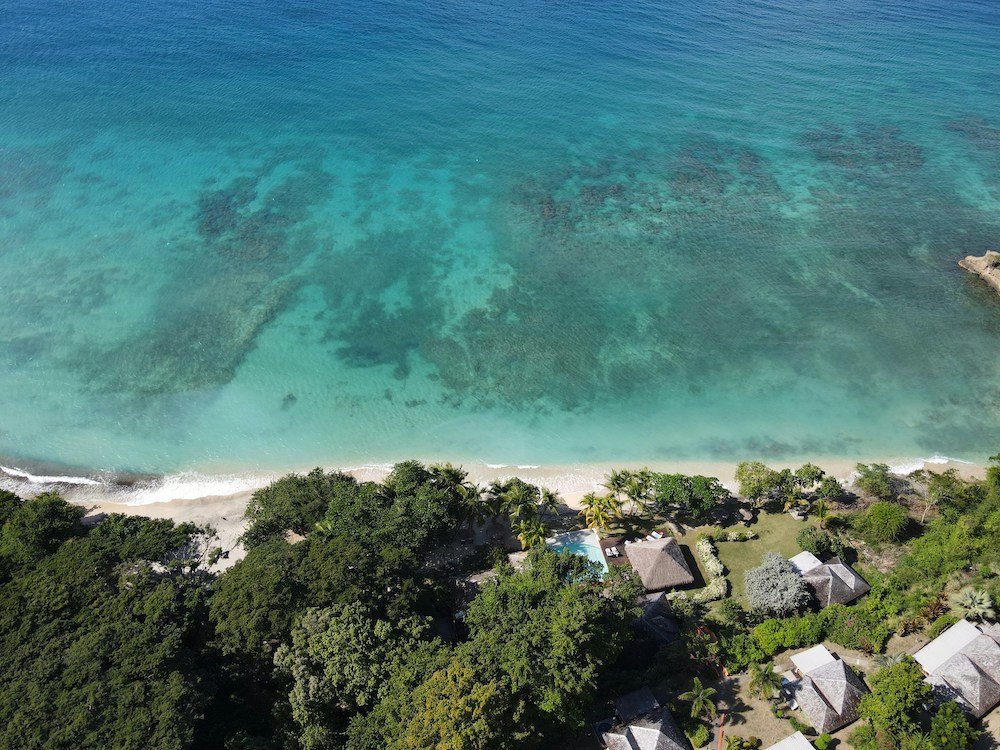
The Caribbean island of Grenada, often referred to as the “Spice Isle,” is a captivating Caribbean destination renowned for its lush landscapes, pristine beaches, and vibrant culture.
Situated in the southeastern Caribbean Sea, Grenada is part of the Lesser Antilles and is composed of the main island of Grenada along with smaller islands, including Carriacou and Petite Martinique.
Its stunning natural beauty, rich history, and warm hospitality make it a favored destination for travelers seeking an authentic Caribbean experience.
Before embarking on a journey to the island of Grenada, it’s crucial to familiarize yourself with key aspects of the destination.
Understanding Grenada’s geography, climate, culture, and practical considerations such as visa requirements and health precautions can significantly enhance your travel experience.
By gaining insights into these essential elements, travelers can better prepare, make informed decisions, and fully appreciate the wonders that Grenada has to offer.
This article aims to provide valuable information and insights into 12 important aspects that every visitor should know before setting foot on the captivating shores of Grenada.
1. Geography and Location
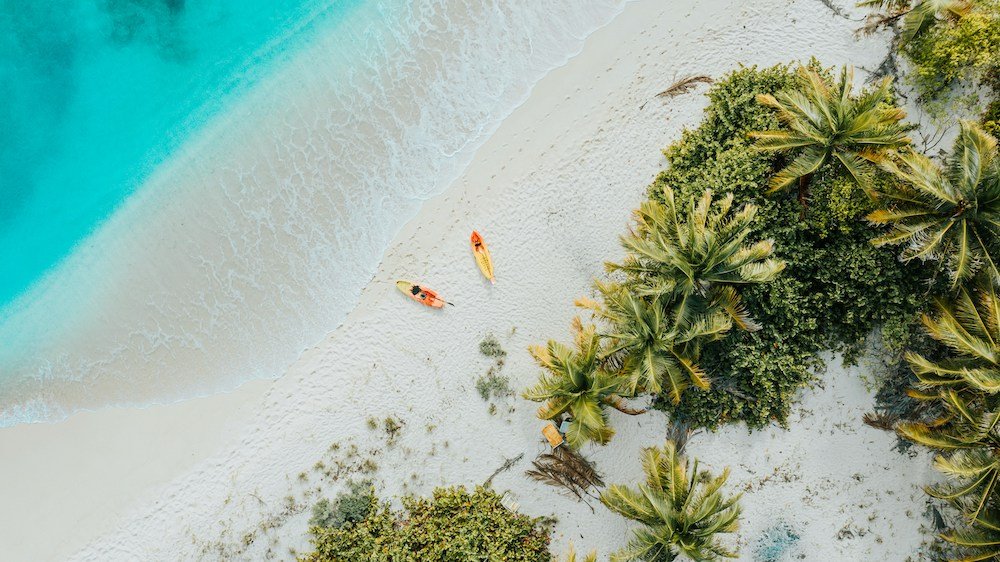
Nestled in the southeastern Caribbean Sea, the island of Grenada is part of the Windward Islands, situated northwest of Trinidad and Tobago and northeast of Venezuela.
Its geographic coordinates place it approximately 12.07° N latitude and 61.73° W longitude.
The island is positioned within the Lesser Antilles, a chain of islands known for their stunning natural beauty and warm tropical climate.
Grenada’s landscape is characterized by its diverse terrain, which includes volcanic peaks, verdant rainforests, cascading waterfalls, and pristine beaches fringed by turquoise waters.
The island is of volcanic origin, with Mount St.
Catherine standing as its highest peak, towering approximately 840 meters (2,760 feet) above sea level.
The interior of Grenada features lush, mountainous terrain blanketed by dense rainforests teeming with exotic flora and fauna.
The fertile soil, coupled with ample rainfall, supports the island’s rich biodiversity, making it a haven for nature enthusiasts and eco-adventurers alike.
In contrast to the rugged interior, Grenada boasts picturesque coastal areas adorned with white and golden sandy beaches lapped by the Caribbean Sea.
Visitors can explore secluded coves, snorkel in vibrant coral reefs, or simply relax and soak up the sun on the island’s pristine shores.
Grenada’s topography also includes fertile valleys and agricultural plains, where nutmeg, cloves, cinnamon, and other spices flourish in the island’s tropical climate.
Known as the “Spice Isle,” Grenada’s lush vegetation and aromatic spices have earned it a reputation as a culinary and botanical paradise, enticing travelers from around the globe to explore its natural wonders.
2. Climate and Weather
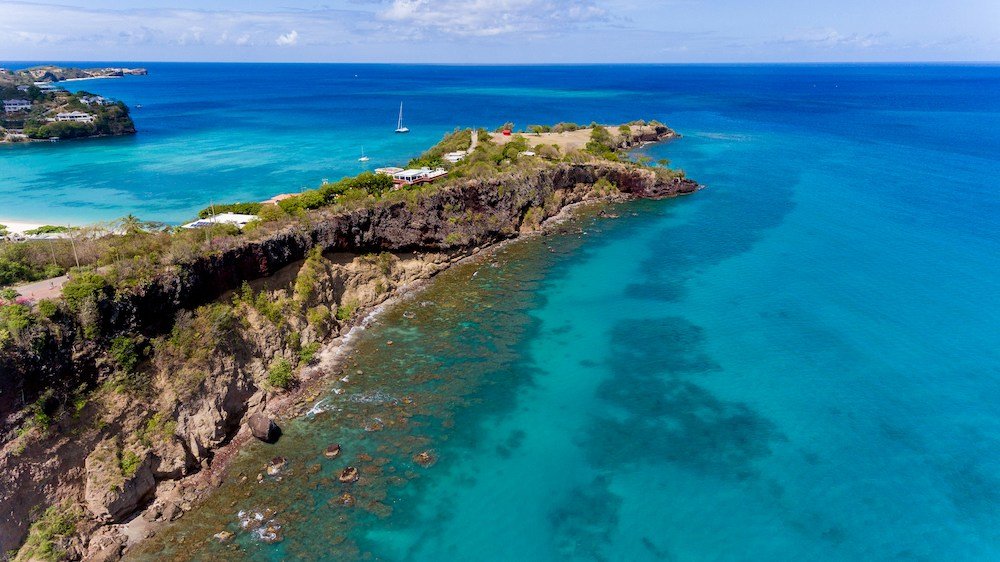
Grenada enjoys a tropical climate characterized by warm temperatures and consistent trade winds.
The island experiences two main seasons: the dry season and the rainy season.
During the dry season, which typically spans from January to May, visitors can expect sunny skies, lower humidity levels, and minimal rainfall.
This period is ideal for outdoor activities, beach excursions, and exploring Grenada’s natural attractions.
In contrast, the rainy season typically occurs from June to December, with increased precipitation and occasional tropical showers.
Despite the rainfall, Grenada’s lush landscapes thrive during this time, presenting travelers with vibrant greenery and flourishing vegetation.
While rain showers are common, they are usually brief and followed by sunny intervals.
Grenada’s tropical climate also contributes to relatively stable temperatures throughout the year, with average highs ranging from 82°F to 88°F (28°C to 31°C) and cooler evenings offering refreshing breezes.
Best Times to Visit Based on Weather Patterns
The best time to visit Grenada largely depends on individual preferences and planned activities.
For travelers seeking sun-soaked days and minimal rainfall, the dry season from January to May offers ideal weather conditions.
This period is particularly popular among beachgoers, snorkelers, and outdoor enthusiasts looking to explore Grenada’s pristine coastlines and embark on water-based adventures.
Alternatively, visitors who don’t mind occasional showers and prefer lush, green landscapes may find the rainy season from June to December appealing.
The rainy season coincides with Grenada’s off-peak tourism period, offering fewer crowds and potentially lower accommodation rates.
Additionally, the island’s rainforests are at their most vibrant during this time, providing excellent opportunities for hiking, birdwatching, and exploring Grenada’s natural beauty.
Ultimately, the best time to visit Grenada depends on personal preferences, budget considerations, and desired activities.
Regardless of the season, Grenada’s welcoming atmosphere, rich culture, and breathtaking scenery ensure a memorable Caribbean experience for visitors year-round.
3. Culture and Language

Grenadian culture is a vibrant tapestry woven from the influences of African, European, and indigenous Caribbean traditions.
Rooted in a history of colonization, slavery, and resilience, Grenadian culture is celebrated for its diversity, warmth, and colorful expressions.
At the heart of Grenadian culture lies a deep appreciation for music, dance, and storytelling.
Traditional rhythms such as calypso, soca, and reggae infuse the air with infectious energy during festivals and social gatherings.
Dance forms like the brukout and quadrille reflect the island’s rich heritage and provide a rhythmic expression of community and celebration.
Grenadians are renowned for their hospitality and strong sense of community. Visitors to the island are welcomed with open arms and are often invited to partake in local customs, cuisine, and festivities.
Whether sharing a meal with family and friends or joining in a spirited game of cricket, the warmth and camaraderie of Grenadian hospitality leave a lasting impression on all who visit.
Overview of Languages Spoken and Cultural Practices
English is the official language of Grenada, reflecting the country’s colonial history under British rule. However, Grenadians also embrace a colorful array of local dialects and expressions that reflect the island’s diverse cultural heritage.
One of the most distinctive aspects of Grenadian culture is its culinary tradition, which draws inspiration from African, Indian, European, and indigenous Caribbean cuisines.
The island’s fertile soil and tropical climate yield an abundance of fresh fruits, vegetables, and spices, which form the foundation of Grenadian cuisine.
Signature dishes such as oil down (a hearty one-pot meal), callaloo soup, and roti reflect the island’s rich culinary heritage and are enjoyed by locals and visitors alike.
Grenadians also hold a deep reverence for their natural surroundings and traditional customs.
Festivals such as Carnival, celebrated in February, and the Grenada Chocolate Festival, pay homage to the island’s cultural roots and showcase its vibrant arts scene.
Traditional practices such as boat-building, basket-weaving, and folk music continue to thrive, preserving Grenada’s cultural identity for future generations to cherish.
4. Visa and Entry Requirements
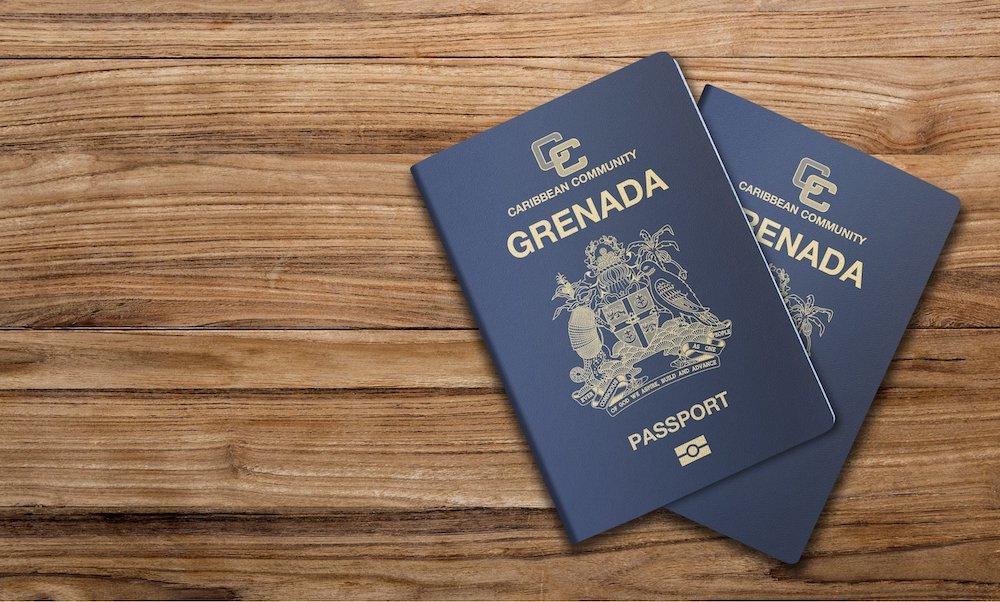
Grenada welcomes visitors from around the world to experience its captivating beauty and warm hospitality.
Understanding the visa requirements for entry into Grenada is essential for travelers planning their visit to the island.
- Visa-Free Entry: Citizens of many countries, including the United States, Canada, the United Kingdom, and European Union member states, can enjoy visa-free entry to Grenada for tourism purposes for stays of up to 90 days. However, it’s crucial to check the specific requirements and restrictions based on your nationality before traveling.
- Visa-on-Arrival: Some nationalities that do not benefit from visa-free entry may be eligible to obtain a visa upon arrival in Grenada. This option typically requires travelers to present certain documents, such as a valid passport, proof of accommodation, return ticket, and sufficient funds for the duration of their stay.
- E-Visa: Grenada also offers an electronic visa (e-visa) application process for travelers from certain countries. This streamlined process allows applicants to obtain their visa online before traveling to Grenada, simplifying the entry process upon arrival.
Entry Regulations and Documentation Needed
In addition to visa requirements, travelers must ensure they meet Grenada’s entry regulations and have the necessary documentation before arriving on the island:
- Valid Passport: All visitors to Grenada must possess a valid passport with at least six months’ validity beyond the intended period of stay. It’s essential to verify the expiration date of your passport well in advance of your travel dates.
- Return Ticket: Travelers may be required to provide proof of a return or onward ticket demonstrating their intention to leave Grenada within the permitted timeframe.
- Proof of Accommodation: Grenadian immigration authorities may request confirmation of accommodation arrangements for the duration of your stay, whether at a hotel, resort, guesthouse, or other accommodation provider.
- Sufficient Funds: Visitors should be prepared to demonstrate access to adequate funds to cover their expenses during their stay in Grenada, including accommodation, meals, transportation, and other essentials.
- Health Declaration Form: In light of health concerns, travelers may be required to complete a health declaration form upon arrival in Grenada, providing information about recent travel history, health status, and potential exposure to communicable diseases.
5. Currency and Banking
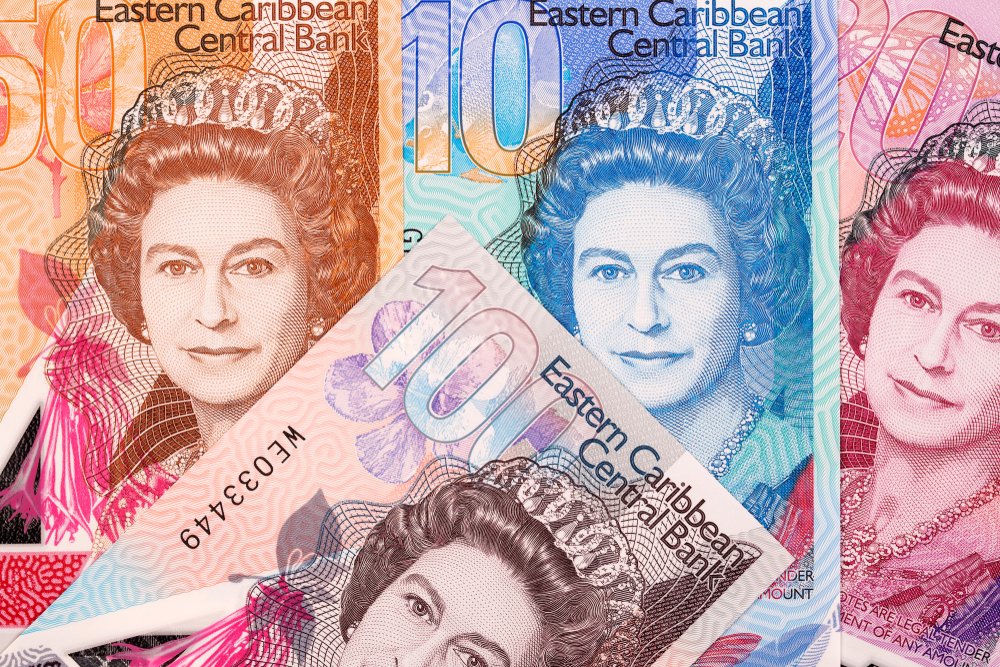
Grenada’s official currency is the Eastern Caribbean Dollar (XCD), denoted by the symbol “EC$.”
The Eastern Caribbean Dollar is pegged to the United States Dollar (USD) at a fixed rate of approximately 2.70 EC$ to 1 USD.
This stable exchange rate simplifies currency conversions for visitors and facilitates seamless transactions during their stay in Grenada.
While the Eastern Caribbean Dollar is the primary currency used in Grenada, US dollars are widely accepted at many tourist establishments, hotels, restaurants, and shops, particularly in popular tourist areas.
Availability of ATMs, Credit Card Acceptance, and Currency Exchange
- ATMs: Grenada offers convenient access to automated teller machines (ATMs) in major towns and tourist hubs across the island. Travelers can withdraw Eastern Caribbean Dollars (XCD) or make cash withdrawals using major international debit and credit cards, such as Visa and Mastercard. It’s advisable to notify your bank of your travel plans before departing to Grenada to avoid any issues with card transactions abroad.
- Credit Card Acceptance: Credit cards, including Visa and Mastercard, are widely accepted at hotels, restaurants, shops, and tourist attractions throughout Grenada. However, it’s recommended to carry cash for smaller purchases and transactions, especially in more remote areas where card acceptance may be limited.
- Currency Exchange: Currency exchange services are available at banks, currency exchange bureaus, and some hotels in Grenada. While US dollars are commonly accepted, travelers may opt to exchange foreign currency for Eastern Caribbean Dollars (XCD) to facilitate transactions and avoid currency conversion fees. It’s advisable to compare exchange rates and fees before exchanging currency to ensure favorable terms.
- Traveler’s Checks: While traveler’s checks were once a popular form of currency for international travel, their use has declined in recent years. Many businesses in Grenada may no longer accept traveler’s checks, making credit cards and cash more convenient payment options for travelers.
6. Health and Safety
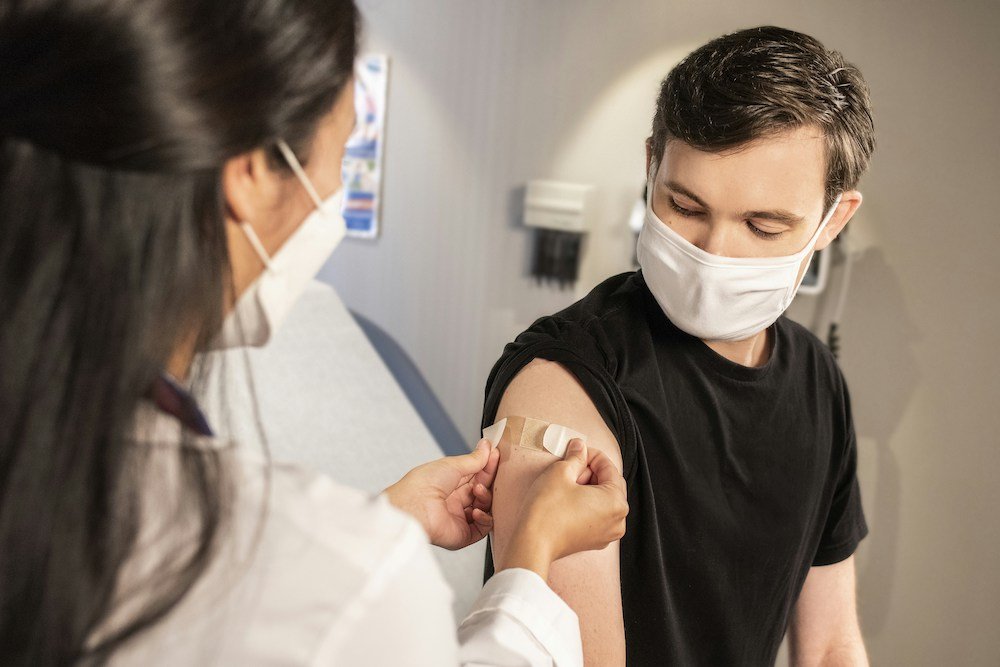
Health Precautions and Vaccinations Recommended
Before traveling to Grenada, it’s essential to be aware of potential health risks and recommended vaccinations to ensure a safe and enjoyable visit to the island.
- Routine Vaccinations: Ensure that your routine vaccinations, such as measles-mumps-rubella (MMR), diphtheria-tetanus-pertussis, varicella (chickenpox), and influenza, are up to date before traveling to Grenada.
- Hepatitis A and Typhoid: Vaccinations for hepatitis A and typhoid are recommended for travelers to Grenada, particularly those who may be exposed to contaminated food or water.
- Mosquito-Borne Illnesses: Grenada is endemic to mosquito-borne illnesses such as dengue fever, chikungunya, and Zika virus. Travelers should take precautions to prevent mosquito bites by using insect repellent, wearing long sleeves and pants, and staying in accommodations with screened windows and doors.
- Sun Protection: The tropical climate in Grenada means that sun exposure can be intense. Protect yourself from sunburn and heat-related illnesses by wearing sunscreen with a high SPF, seeking shade during peak sun hours, and staying hydrated.
- Water and Food Safety: Drink bottled or purified water and avoid consuming untreated tap water. Exercise caution when eating street food and ensure that cooked foods are served hot and fresh.
It’s advisable to consult with a healthcare provider or travel medicine specialist well in advance of your trip to Grenada to discuss any specific health concerns and receive personalized recommendations for vaccinations and preventive measures.
Safety Tips for Visitors
Grenada is generally considered a safe destination for travelers, but it’s essential to exercise common sense and take precautions to ensure your safety during your stay:
- Personal Belongings: Keep your belongings secure and avoid carrying large sums of cash or valuable items when exploring tourist areas or crowded locations.
- Beach Safety: Exercise caution when swimming in the ocean, especially in areas with strong currents or undertows. Heed warning signs and lifeguard instructions, and avoid swimming alone, particularly in remote areas.
- Respect Local Customs: Familiarize yourself with local customs and cultural norms, and be respectful of Grenada’s traditions, beliefs, and way of life.
- Emergency Services: Familiarize yourself with the local emergency contact numbers, including police, fire, and medical services, and know the location of the nearest healthcare facilities and pharmacies.
- Natural Hazards: Be mindful of natural hazards such as uneven terrain, slippery surfaces, and wildlife encounters when exploring Grenada’s natural attractions and hiking trails.
7. Accommodation Options

Grenada offers a diverse range of accommodation options to suit every traveler’s preferences, from luxurious resorts to cozy guesthouses and eco-friendly boutique hotels:
- Luxury Resorts: Grenada boasts several world-class luxury resorts nestled along its stunning coastline. These resorts offer lavish amenities, gourmet dining options, spa facilities, and exclusive access to pristine beaches.
- Boutique Hotels: For travelers seeking a more intimate and personalized experience, boutique hotels in Grenada provide charming accommodations with unique decor, attentive service, and locally-inspired cuisine.
- Guesthouses and Bed & Breakfasts: Visitors looking to immerse themselves in Grenadian culture and hospitality can opt for guesthouses and bed & breakfast accommodations. These cozy establishments offer comfortable rooms, home-cooked meals, and opportunities to interact with locals.
- Villas and Vacation Rentals: Grenada features a variety of private villas and vacation rentals ideal for families, groups, and long-term stays. These spacious accommodations often include private pools, fully-equipped kitchens, and breathtaking views of the Caribbean Sea.
- Eco-Resorts and Sustainable Lodgings: For eco-conscious travelers, Grenada offers eco-resorts and sustainable lodgings that prioritize environmental conservation and responsible tourism practices. These accommodations blend seamlessly with the island’s natural surroundings and offer unique eco-friendly experiences.
Recommendations for Different Budgets and Preferences
- Luxury Travelers: Luxury travelers seeking indulgent experiences should consider staying at resorts such as Sandals Grenada Resort & Spa or Silversands Grenada, known for their opulent amenities, world-class dining, and unparalleled service.
- Mid-Range Budget: Travelers with mid-range budgets can explore options like True Blue Bay Boutique Resort, Mount Cinnamon Resort & Beach Club, or Kalinago Beach Resort, offering a balance of comfort, affordability, and amenities.
- Budget-Friendly Accommodations: For budget-conscious travelers, guesthouses, bed & breakfasts, and small hotels in areas like St. George’s, Grand Anse, and Lance Aux Epines provide affordable lodging options without compromising on quality or convenience.
- Family-Friendly Accommodations: Families traveling with children may prefer spacious accommodations such as villas or vacation rentals, offering privacy, flexibility, and amenities tailored to family needs.
- Eco-Conscious Travelers: Eco-conscious travelers can choose from eco-resorts like Petite Anse Hotel or sustainable lodgings such as Belmont Estate, known for their commitment to environmental stewardship and eco-friendly practices.
8. Transportation

Grenada offers various transportation options for travelers to explore the island’s picturesque landscapes, vibrant culture, and charming towns:
- Public Buses: Public buses are a popular and affordable means of transportation for locals and visitors alike. The bus system operates on fixed routes across the island, providing access to major towns, tourist attractions, and beaches. Buses are recognizable by their colorful markings and are a great way to experience Grenada’s local culture.
- Taxis: Taxis are readily available throughout Grenada and offer a convenient mode of transportation for travelers seeking flexibility and comfort. Taxi fares are typically metered, but it’s advisable to confirm the fare with the driver before starting your journey, especially for longer trips or tours.
- Rental Cars: Renting a car is an excellent option for travelers who prefer to explore Grenada independently and at their own pace. Several rental car agencies operate on the island, offering a range of vehicle options, including sedans, SUVs, and jeeps. Visitors should be prepared to drive on the left side of the road, as per Grenada’s traffic regulations.
- Bicycle Rentals: For eco-conscious travelers and cycling enthusiasts, bicycle rentals provide a fun and environmentally friendly way to explore Grenada’s scenic landscapes and coastal roads. Several rental shops offer bicycles for daily or weekly hire, allowing visitors to discover hidden gems and off-the-beaten-path destinations at their leisure.
- Water Taxis: Water taxis and boat charters offer a unique and picturesque mode of transportation for traveling between Grenada’s main island and its surrounding sister islands, such as Carriacou and Petite Martinique. These services provide convenient access to secluded beaches, snorkeling spots, and island-hopping adventures.
Tips for Getting Around the Island Efficiently
- Plan Your Itinerary: Prioritize your must-see attractions and plan your itinerary to optimize your time and transportation options efficiently.
- Be Mindful of Traffic: Traffic congestion, especially during peak hours in urban areas like St. George’s, can impact travel times. Plan accordingly to avoid delays and optimize your schedule.
- Utilize GPS and Maps: Familiarize yourself with Grenada’s road network and utilize GPS navigation or offline maps to navigate unfamiliar routes and reach your destinations with ease.
- Budget Sufficient Travel Time: Allow ample time for travel between destinations, considering factors such as traffic conditions, road quality, and unexpected delays.
- Respect Local Driving Practices: Exercise caution and patience when driving in Grenada, especially on winding roads and steep inclines. Respect local driving practices, yield to pedestrians, and adhere to speed limits and traffic regulations.
9. Cuisine and Dining
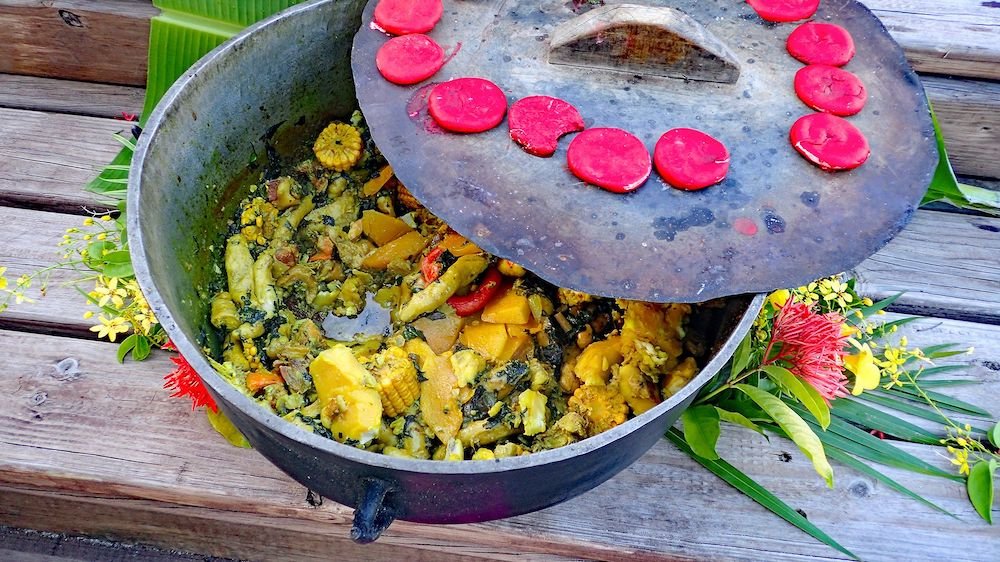
Grenadian cuisine is a delightful fusion of flavors, influenced by African, European, Indian, and indigenous Caribbean culinary traditions.
With its abundance of fresh seafood, tropical fruits, aromatic spices, and locally sourced ingredients, Grenadian cuisine reflects the island’s rich cultural heritage and diverse culinary heritage.
At the heart of Grenadian cuisine lies a passion for bold flavors, hearty stews, and vibrant dishes that showcase the island’s bountiful natural resources.
From savory seafood dishes to flavorful vegetarian fare, Grenadian cuisine offers a tantalizing array of culinary delights sure to delight the palate of any food enthusiast.
Recommendations for Must-Try Dishes and Dining Experiences
- Oil Down: Considered Grenada’s national dish, oil down is a hearty one-pot meal featuring tender pieces of chicken, salted meat, breadfruit, dumplings, and vegetables cooked in coconut milk and flavored with aromatic spices. This flavorful stew is a quintessential taste of Grenadian cuisine and is often enjoyed at local gatherings and festivals.
- Callaloo Soup: Callaloo soup is a nutritious and flavorful dish made from dasheen leaves (taro leaves), okra, coconut milk, and a variety of seasonings. Often served with dumplings or bread, callaloo soup is a comforting and satisfying meal that highlights Grenada’s lush vegetation and culinary ingenuity.
- Roti: Influenced by Indian cuisine, roti is a popular street food in Grenada, featuring a thin, flaky flatbread filled with a choice of curried meats, vegetables, or chickpeas. Served with a side of spicy chutney or hot sauce, roti is a flavorful and portable dining option perfect for enjoying on the go.
- Fresh Seafood: With its abundant coastline and rich marine biodiversity, Grenada offers an array of fresh seafood delicacies, including grilled lobster, garlic shrimp, and fried fish. Sample the catch of the day at local seafood restaurants and beachside shacks, where you can savor the flavors of the Caribbean Sea in every bite.
- Cocoa Tea: A beloved Grenadian beverage, cocoa tea is a rich and indulgent drink made from locally grown cocoa beans, milk, spices, and sweeteners. Served hot and frothy, cocoa tea is a comforting and invigorating treat enjoyed at breakfast or as a soothing nightcap.
- Dining Experiences: In addition to its delectable cuisine, Grenada offers a variety of dining experiences to suit every taste and occasion. From casual beachfront cafes to upscale restaurants with panoramic views, visitors can savor memorable dining experiences against the backdrop of Grenada’s breathtaking landscapes and warm hospitality.
10. Attractions and Activities
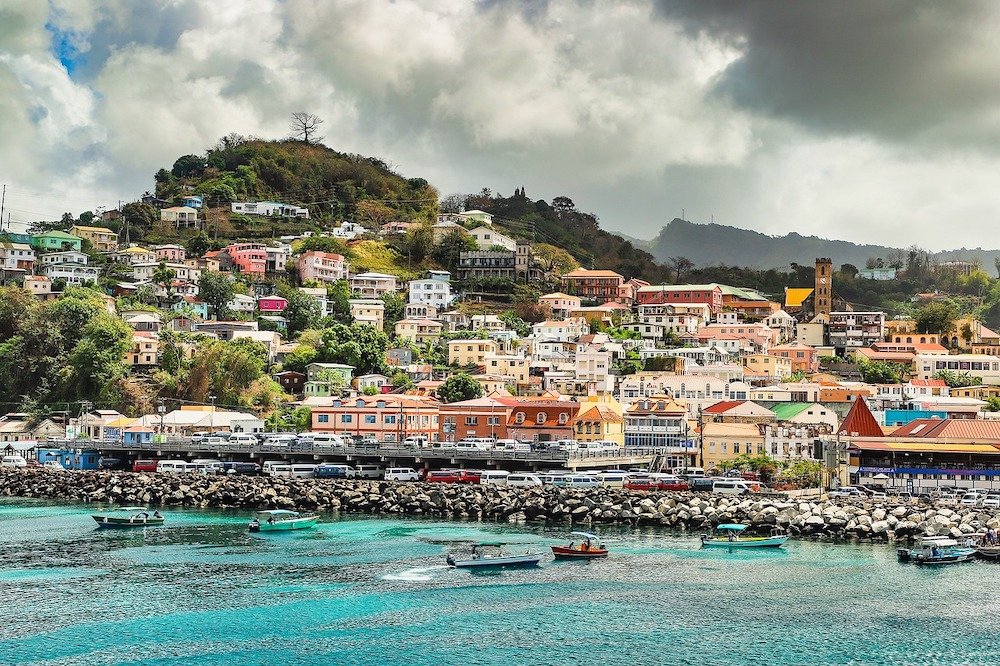
Grenada is a captivating destination blessed with natural beauty, historical landmarks, and vibrant cultural experiences. Here are some of the island’s most popular attractions and activities:
- Grand Anse Beach: Renowned for its pristine white sands and crystal-clear waters, Grand Anse Beach is a must-visit destination for sunbathers, swimmers, and water sports enthusiasts. Relax on the shore, swim in the turquoise sea, or indulge in activities such as snorkeling, kayaking, and paddleboarding.
- Fort George: Perched on a hill overlooking the capital city of St. George’s, Fort George offers panoramic views of the harbor and surrounding landscapes. Explore the historic fortifications, cannons, and military artifacts, and learn about Grenada’s colonial past and strategic significance.
- Annandale Falls: Nestled in the lush rainforest of the interior, Annandale Falls is a picturesque waterfall surrounded by tropical vegetation and rock formations. Visitors can take a short hike to the falls, swim in the natural pool, and enjoy the tranquility of Grenada’s natural landscapes.
- Underwater Sculpture Park: Located off the coast of Moliniere Bay, the Underwater Sculpture Park is a unique marine conservation project featuring a collection of submerged sculptures by artist Jason deCaires Taylor. Snorkel or dive among the sculptures and witness the stunning underwater artistry and marine life.
- Gouyave Nutmeg Processing Station: Discover the fascinating process of nutmeg production at the Gouyave Nutmeg Processing Station, where visitors can learn about Grenada’s spice industry, tour the facilities, and purchase locally grown spices and souvenirs.
Recommendations for Outdoor Adventures, Cultural Experiences, etc.
- Rainforest Hiking: Embark on an exhilarating hike through Grenada’s verdant rainforests, where lush vegetation, cascading waterfalls, and exotic wildlife await. Explore trails such as the Concord Falls Trail, Seven Sisters Waterfalls, and Mt. Qua Qua for unforgettable outdoor adventures.
- Sailing and Boat Tours: Discover Grenada’s scenic coastline and hidden coves aboard a sailing excursion or boat tour. Explore secluded beaches, snorkel in coral reefs, and enjoy sunset cruises against the backdrop of Grenada’s stunning sunsets.
- Spice Tours and Culinary Workshops: Immerse yourself in Grenada’s spice culture with a guided tour of spice plantations and nutmeg processing facilities. Learn about the cultivation and harvesting of spices, participate in cooking classes, and sample authentic Grenadian cuisine.
- Cultural Festivals and Events: Experience the vibrant rhythms and colorful celebrations of Grenada’s cultural festivals and events, including Carnival, Fish Friday in Gouyave, and the Grenada Chocolate Festival. Dance to calypso music, sample local delicacies, and join in the festive atmosphere of Grenada’s cultural calendar.
- Diving and Snorkeling: Explore Grenada’s underwater wonders with diving and snorkeling excursions to coral reefs, shipwrecks, and marine sanctuaries. Discover vibrant coral gardens, encounter colorful marine life, and dive alongside sea turtles, rays, and tropical fish in Grenada’s pristine waters.
11. Etiquette and Customs

Grenada is known for its warm hospitality and vibrant culture, and understanding local etiquette and customs can enhance your experience on the island:
- Respect for Elders: In Grenadian culture, respect for elders is highly valued. It’s customary to greet elders with a polite “good morning,” “good afternoon,” or “good evening” as a sign of respect.
- Greetings: Grenadians are friendly and approachable people who appreciate polite greetings and small talk. When meeting someone for the first time, a firm handshake and a warm smile are customary.
- Dress Code: While Grenada has a relaxed and casual atmosphere, it’s important to dress modestly and respectfully, especially when visiting religious sites, government buildings, or formal events.
- Punctuality: While punctuality is valued in professional settings, social gatherings and events in Grenada often operate on “island time,” which may involve some flexibility with schedules and timelines.
- Table Manners: When dining in Grenada, it’s polite to wait for the host or hostess to begin eating before starting your meal. Keep your elbows off the table, and use utensils rather than eating with your hands, unless it’s customary for the particular dish being served.
Dos and Don’ts for Respectful Interactions
- Do:
- Greet people with a friendly smile and a polite greeting.
- Ask permission before taking photographs, especially of individuals or in sensitive locations.
- Respect local customs and traditions, including religious practices and cultural ceremonies.
- Don’t:
- Use offensive language or gestures, as they may be perceived as disrespectful.
- Touch someone’s head without permission, as it’s considered impolite in Grenadian culture.
- Wear swimwear or revealing clothing outside of designated beach areas or resorts.
- Do:
- Accept invitations to social gatherings and events with gratitude and enthusiasm.
- Express appreciation for hospitality and kindness shown to you by locals.
- Leave a gratuity of 10-15% for good service at restaurants, unless a service charge is already included.
- Don’t:
- Engage in public displays of affection, as they may be considered inappropriate in certain settings.
- Discuss sensitive topics such as politics or religion unless invited to do so by your hosts.
- Litter or disrespect the natural environment, as Grenadians take pride in preserving their island’s beauty.
12. Environmental Conservation
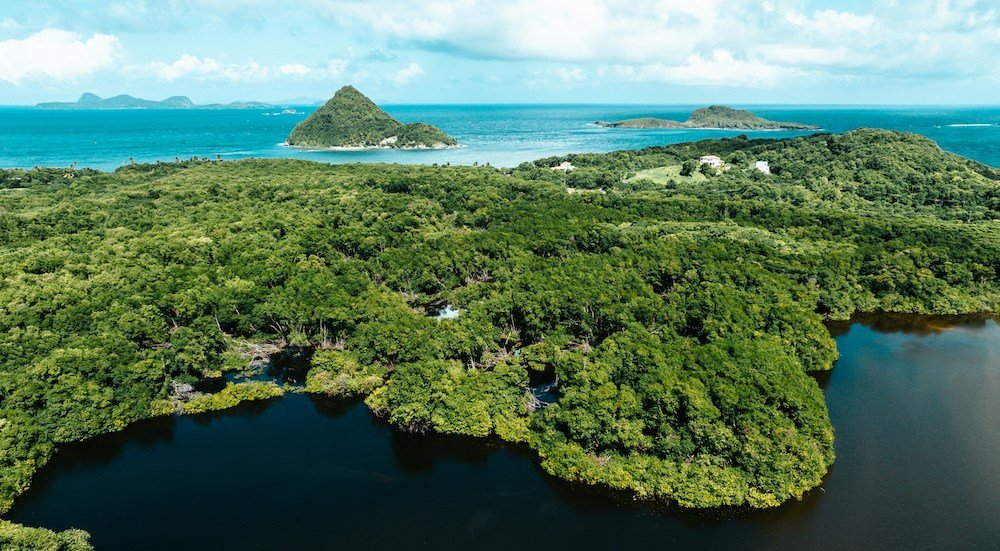
Grenada’s natural beauty is one of its most precious assets, encompassing pristine beaches, lush rainforests, and vibrant coral reefs.
As stewards of the environment, it’s essential to recognize the importance of preserving Grenada’s ecological diversity and protecting its fragile ecosystems for future generations.
- Biodiversity: Grenada is home to a rich array of plant and animal species, many of which are endemic to the island. Protecting Grenada’s biodiversity ensures the survival of unique flora and fauna and maintains the ecological balance of its ecosystems.
- Ecosystem Services: The natural landscapes of Grenada provide essential ecosystem services, including clean air, fresh water, and fertile soil. Preserving these ecosystems safeguards human health and well-being and supports sustainable livelihoods for local communities.
- Tourism and Economy: Grenada’s natural beauty is a major draw for tourists, contributing significantly to the island’s economy through tourism revenue and job creation. By conserving the environment, Grenada can continue to attract visitors and sustainably develop its tourism industry for long-term prosperity.
- Climate Resilience: As an island nation, Grenada is vulnerable to the impacts of climate change, including rising sea levels, extreme weather events, and loss of biodiversity. Protecting natural habitats and implementing climate-resilient practices are crucial for mitigating these risks and building resilience to environmental challenges.
Tips for Responsible Tourism Practices
- Reduce, Reuse, Recycle: Practice responsible waste management by reducing plastic consumption, reusing items whenever possible, and recycling materials to minimize environmental pollution.
- Conserve Water and Energy: Practice water and energy conservation by taking shorter showers, turning off lights and appliances when not in use, and opting for eco-friendly accommodations that prioritize sustainability.
- Respect Wildlife and Marine Life: Observe wildlife from a safe distance, avoid disturbing nesting sites or habitats, and refrain from feeding or touching wild animals. When snorkeling or diving, practice responsible reef etiquette by avoiding contact with coral reefs and marine life.
- Support Sustainable Practices: Choose eco-friendly tour operators, hotels, and businesses that prioritize environmental conservation and sustainable practices. Support local initiatives and organizations dedicated to protecting Grenada’s natural heritage.
- Leave No Trace: Leave natural areas as you found them and take only photographs, memories, and experiences with you. Dispose of waste properly, respect signage and protected areas, and leave minimal impact on the environment during your travels.
Conclusion
Before embarking on your journey to Grenada, it’s essential to keep in mind the following key points:
- Visa and Entry Requirements: Familiarize yourself with Grenada’s visa requirements and entry regulations based on your nationality to ensure a smooth arrival experience.
- Climate and Weather: Plan your visit to Grenada based on weather patterns, with the dry season offering sunny days and the rainy season showcasing lush landscapes.
- Cultural Awareness: Respect Grenadian customs, traditions, and etiquette, including greetings, dress codes, and table manners, to foster positive interactions and meaningful connections.
- Accommodation and Transportation: Choose accommodation options and transportation modes that suit your preferences, budget, and travel style, ensuring a comfortable and convenient stay on the island.
- Attractions and Activities: Explore Grenada’s diverse attractions and activities, from pristine beaches and historic landmarks to outdoor adventures and cultural experiences, to create unforgettable memories.
- Environmental Conservation: Embrace responsible tourism practices and support environmental conservation efforts to protect Grenada’s natural beauty and preserve its ecological diversity for future generations.
As you prepare to embark on your journey to Grenada, remember to approach your travels with an open heart, a spirit of adventure, and a commitment to respectful and responsible tourism.
Embrace the warmth and hospitality of Grenadian culture, savor the flavors of its culinary delights, and immerse yourself in the breathtaking beauty of its landscapes and seascapes.
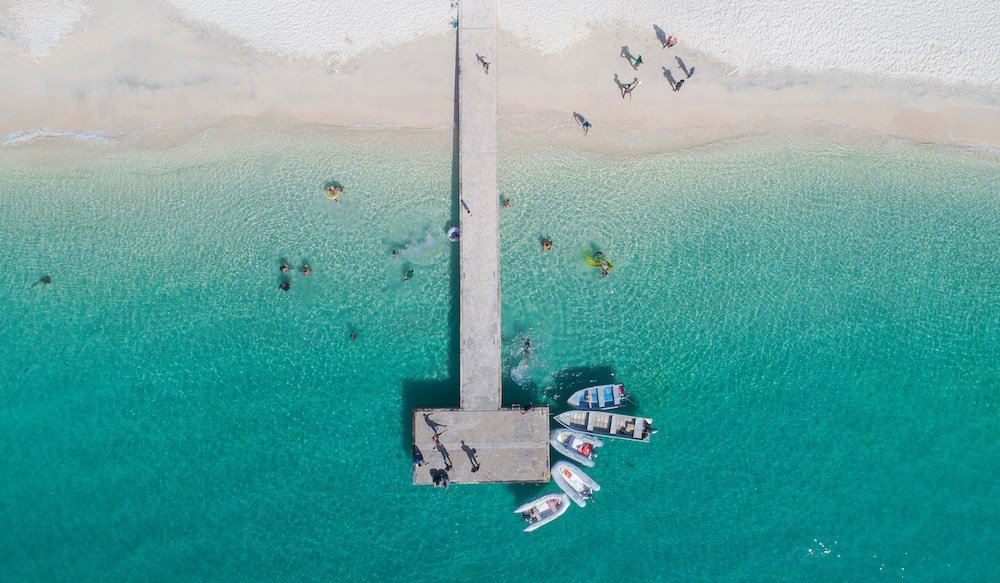
FAQ’s About the Island of Grenada:
What Country is Grenada Owned by?
Grenada is an independent country located in the Caribbean. It is not owned by any other nation.
Why is Grenada Famous?
Grenada is famous for its stunning beaches, lush rainforests, and vibrant culture.
It’s often referred to as the “Spice Isle” due to its production of nutmeg, cloves, cinnamon, and other spices.
Is it Safe to Travel to Grenada Now?
Grenada is generally considered a safe destination for travelers.
However, like any other place, it’s essential to exercise caution and be aware of your surroundings.
The local authorities in Grenada take measures to ensure the safety and security of visitors.
Is Grenada Good for a Holiday?
Absolutely! Grenada is an excellent destination for a holiday, offering a perfect blend of natural beauty, rich history, and warm hospitality.
Whether you’re interested in relaxing on pristine beaches, exploring lush rainforests, or immersing yourself in local culture, Grenada has something for everyone.
Is Grenada Rich or Poor?
Grenada is considered a developing country with a diverse economy that includes agriculture, tourism, and services.
While it faces economic challenges like many other nations, Grenada’s natural resources and vibrant culture contribute to its overall richness.
What Language Do Grenadians Speak?
English is the official language of Grenada and is widely spoken throughout the country.
Grenadians also use a local Creole dialect, which is influenced by African, French, and West Indian languages.
What Money is Used in Grenada?
The official currency of Grenada is the Eastern Caribbean Dollar (XCD), which is abbreviated as EC$.
It’s pegged to the United States Dollar (USD) at a fixed rate.
Why Did the US Invade Grenada?
The United States invaded Grenada in 1983 in a military operation known as “Operation Urgent Fury.”
The invasion was prompted by concerns about the safety of American citizens living in Grenada following a coup d’état and the establishment of a Marxist government.
The intervention aimed to restore stability and democracy to the country.
